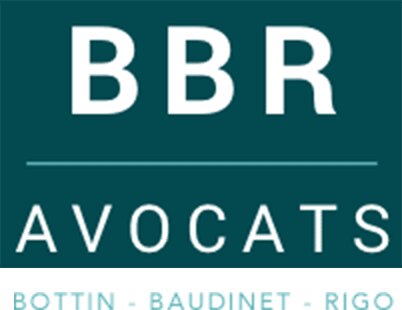Best Landlord & Tenant Lawyers in Liège
Share your needs with us, get contacted by law firms.
Free. Takes 2 min.
Free Guide to Hiring a Real Estate Lawyer
List of the best lawyers in Liège, Belgium
About Landlord & Tenant Law in Liège, Belgium
Landlord and tenant law in Liège, Belgium, is governed primarily by the regional rental regulations specific to Wallonia, as well as Belgian federal civil law. The relationship between landlords and tenants is carefully regulated to ensure fair treatment, protect the rights of both parties, and ensure access to safe and adequate housing. Renting property in Liège typically involves signing a lease agreement, which must comply with current legislation covering issues such as rent control, deposit requirements, maintenance obligations, and eviction procedures. Whether you are a landlord or a tenant, understanding your rights and responsibilities is crucial to avoiding disputes and ensuring a smooth rental experience.
Why You May Need a Lawyer
Legal issues can arise at any stage of a landlord and tenant relationship, and professional legal advice is often necessary to protect your interests. Common scenarios where you may need a lawyer include resolving disputes over unpaid rent, challenging a rent increase, clarifying the terms of a lease agreement, handling eviction procedures, negotiating with a landlord or tenant who is not meeting their obligations, or dealing with problems related to repairs and property maintenance. A lawyer specializing in landlord and tenant law in Liège can provide guidance, represent you in negotiations or court, and help ensure the legal process is followed correctly.
Local Laws Overview
The rental market in Liège is subject to Walloon regional regulations, which dictate the rights and duties of both landlords and tenants. Key aspects include:
- Lease Agreements: Written leases are required for most residential rentals and must include specific information such as rent amount, duration, and the responsibilities of each party.
- Rental Deposit: Landlords can request a deposit of up to two months’ rent for an unfurnished property, which must be placed in a blocked bank account in the tenant's name.
- Rent Increases: Rent can only be increased under certain conditions, usually tied to the consumer price index, and must follow a specific legal process.
- Maintenance and Repairs: Landlords must provide habitable housing and handle necessary major repairs. Tenants are responsible for minor maintenance and regular upkeep.
- Eviction Procedures: Eviction can only occur through a legal process and with a court order, except in rare situations of urgent necessity.
- Termination Notice: Both landlords and tenants must respect minimum notice periods when ending a lease, which vary depending on the type of lease and who initiates termination.
Understanding these local laws is essential for preventing misunderstandings and ensuring compliance with legal and contractual obligations.
Frequently Asked Questions
What are my rights as a tenant in Liège?
Tenants in Liège have the right to a safe and habitable property, protection against illegal eviction, privacy, and clear information regarding any rent or deposit payments. The lease must explicitly outline the rights and obligations of both parties.
How much can a landlord ask for a rental deposit?
Under Walloon law, the rental deposit for an unfurnished property cannot exceed two months’ rent. The deposit must be held in a dedicated, blocked bank account in the tenant’s name.
Can my rent be increased during my lease?
Rent increases during the term of a lease are regulated. Adjustments are usually tied to the consumer price index and must follow specific notification procedures. Additional requirements apply for increases based on renovation or market conditions.
How can I legally terminate my lease?
Lease termination rules depend on the type and duration of the lease. Generally, written notice must be provided, respecting minimum notice periods. Landlords often face stricter requirements, especially if eviction is involved.
What should I do if my landlord does not make necessary repairs?
Start by informing your landlord in writing about the needed repairs. If the issue is not addressed, tenants may seek help from the local justice of the peace (Justice de Paix) or seek legal advice to enforce their rights.
What happens if I cannot pay my rent?
If you are unable to pay rent, contact your landlord as soon as possible to discuss potential solutions. Persistent non-payment may lead to legal action and possible eviction. Legal advice can help you understand your options and any available protections.
Can a landlord enter the property without my permission?
With few exceptions, such as emergencies, a landlord must have the tenant’s permission or provide reasonable notice before entering the rental property, as tenants have the right to privacy.
How is a dispute between landlord and tenant typically resolved?
Most disputes are resolved through negotiation and written communication. If an agreement cannot be reached, parties may request mediation or take the matter to the Justice de Paix, the local judicial authority for landlord and tenant matters.
Is a written lease required for renting?
Yes, written leases are mandatory for most residential rentals in Wallonia, including Liège, and must confirm to regional legal requirements. Oral agreements are strongly discouraged and provide little protection.
What should be included in a lease agreement?
A lease should clearly state the identities of both parties, description of the property, rent amount, deposit, payment terms, lease duration, responsibilities for maintenance and repairs, procedures for ending the lease, and any house rules or special terms.
Additional Resources
Those seeking more information or assistance regarding landlord and tenant issues in Liège can turn to a number of local and regional resources. Some of the most useful include:
- The Walloon Housing Directorate (Direction Générale Opérationnelle Aménagement du Territoire, Logement, Patrimoine et Energie) - provides guidance on regional rental regulations.
- Justice de Paix (Justice of the Peace) for Liège - the local court responsible for landlord and tenant disputes.
- Tenant and landlord associations - organizations can offer advice, mediation, and resources to both tenants and landlords.
- Legal aid offices (Bureaux d’Aide Juridique) - provide free or low-cost legal advice for those who qualify.
- Municipal housing offices - local government bodies can provide information on housing rights and available resources.
Next Steps
If you are experiencing a legal issue related to landlord and tenant law in Liège, consider the following steps:
- Review your lease agreement and collect all relevant documentation, such as correspondence, payment receipts, or maintenance requests.
- Communicate directly and in writing with the other party to attempt to resolve the situation amicably.
- If the issue persists, consult one of the recommended resources or seek assistance from a legal professional specializing in landlord and tenant law.
- If you cannot afford a lawyer, contact your local legal aid office for support and guidance.
- For disputes that cannot be resolved out of court, be prepared to present your case before the Justice de Paix in Liège.
Understanding your rights and the local laws is the first step to resolving landlord and tenant issues effectively. Do not hesitate to seek legal advice to ensure your interests are protected and the correct procedures are followed.
Lawzana helps you find the best lawyers and law firms in Liège through a curated and pre-screened list of qualified legal professionals. Our platform offers rankings and detailed profiles of attorneys and law firms, allowing you to compare based on practice areas, including Landlord & Tenant, experience, and client feedback.
Each profile includes a description of the firm's areas of practice, client reviews, team members and partners, year of establishment, spoken languages, office locations, contact information, social media presence, and any published articles or resources. Most firms on our platform speak English and are experienced in both local and international legal matters.
Get a quote from top-rated law firms in Liège, Belgium — quickly, securely, and without unnecessary hassle.
Disclaimer:
The information provided on this page is for general informational purposes only and does not constitute legal advice. While we strive to ensure the accuracy and relevance of the content, legal information may change over time, and interpretations of the law can vary. You should always consult with a qualified legal professional for advice specific to your situation.
We disclaim all liability for actions taken or not taken based on the content of this page. If you believe any information is incorrect or outdated, please contact us, and we will review and update it where appropriate.
















